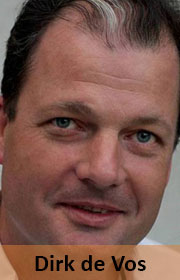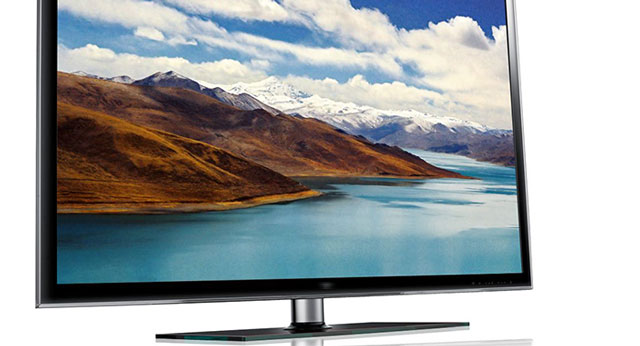 Consumers stand to be the biggest losers during South Africa’s migration to digital terrestrial television (DTT). As the country races to meet an international deadline to switch off analogue TV by 2015, major decisions are being made that will raise costs for consumers and ultimately for government.
Consumers stand to be the biggest losers during South Africa’s migration to digital terrestrial television (DTT). As the country races to meet an international deadline to switch off analogue TV by 2015, major decisions are being made that will raise costs for consumers and ultimately for government.
The move to DTT means that South Africans must buy a digital decoder or set-top box by 2015 or risk losing TV reception. The proposition is simple: no digital decoder, no more TV. But in these tough times, how much will this cost and will it be affordable? Internationally, we have seen that affordability alongside content is a major driver of take up for DTT.
What is being hotly debated at the moment is whether the set-top box for free TV services should include the kind of encryption or conditional access software normally used by pay-TV operators to cut you off when you don’t pay your subscription. Why must a free-to-air platform invest in software to switch viewers on and off?
One possible explanation is that this system is being introduced to cut off viewers who don’t pay their TV licences. If this indeed is the case, the worst affected will be the poorest of the poor who will definitely not want to migrate to digital if it means being deprived of TV services.
It’s never been clear why free TV would need software like this, particularly when it is so out of line with international best practice (no other major TV market in the world has gone this route). The UK, arguably the most successful DTT market, did not include encryption in its free-to-air set-top boxes.
It gets even more confusing when you start unpacking the costs — software royalties, management services, certification, call centre operations, etc. Government is subsidising 5m set-top boxes up to 70% of the cost. This software increases the cost of the box — the increased cost will have to be borne both by government and the consumer.
The increase in the cost of adding conditional access to a set-top box can range from US$9 to $12. This is based on the type of secured silicon that is required, royalties, labour, card or cardless readers, maintenance, etc. Let’s assume it’s $9/box. Government will sponsor in excess of 5m boxes, which equals R450m of taxpayer money. In the past, CA systems have been hacked over and over again, and the ongoing replacement costs and operational costs will amount to millions of rand. For what benefit?
Conditional access has its place — as a mechanism used by pay-TV operators to allow them to monetise use of content. So unless the SABC intends to become a pay-TV operator, what is the point?
Government has already invested heavily in Sentech’s infrastructure and its platform called Freevision, which is the place to launch pay-TV services. Those in favour of conditional access can go to Sentech. Why should taxpayers be burdened again with this cost? The new subscriber management system alone has just cost Sentech millions to implement to cater for pay-TV services.
Contrary to popular belief, conditional access does not prevent set-top box migration to neighbouring countries or cross-border spillage. Free-to-air channels can still be picked up using conditional access on a set-top box. A simple network “locking” solution (similar to mobile network locking of mobile phones) at minimum cost will solve this issue.
The picture doesn’t improve in the long run because the inclusion of this kind of software creates a new and bigger problem. Set-top boxes for free-to-air television are an interim step designed to enhance the life of your existing analogue TV. The set-top box allows the digital signal to be displayed on existing television sets.

The box becomes redundant when consumers replace their analogue TVs with digital TVs. In the rest of the world, digital TVs are outselling set-top boxes and are fast becoming the norm for receiving free-to-air digital television. If conditional access software becomes a requirement, these digital TVs won’t work in South Africa. The consumer will still have to purchase an additional set-top box in order to receive a picture on their new digital TVs.
The other consideration is that some argue that this software is necessary to protect local manufacturers. The fact is that only local manufacturers that will be protected are the established ones that already have relationships with the conditional access vendors. The emerging black manufacturers will have to start a new relationship and try to get accreditation, which will set back the migration process by at least a further six months, and with no guarantee that they will be accredited. It is our view that this software will serve to entrench the dominance of incumbent manufacturers.
Foreign companies have now become the largest manufacturers of set-top boxes with conditional access. How will this stop grey imports? The answer to this is simple. Firstly increase the duty on set-top box imports in order to support the local manufacturing base.
Secondly, ensure set-top boxes sold through retailers are compliant and endorsed by the South African Bureau of Standards as well as by communications regulator Icasa and National Regulator for Compulsory Specifications.
It is in the best interests of the public for government to use a simple box (adapter) to replace existing viewing. The focus should be on empowering local black manufacturers and on meeting the mid-June 2015 deadline government agreed to with the International Telecommunication Union to switch off analogue broadcasts.
- Keith Thabo is president of the National Association of Manufacturers in Electronic Components




